How to Grow and Care for Climbing Hydrangea
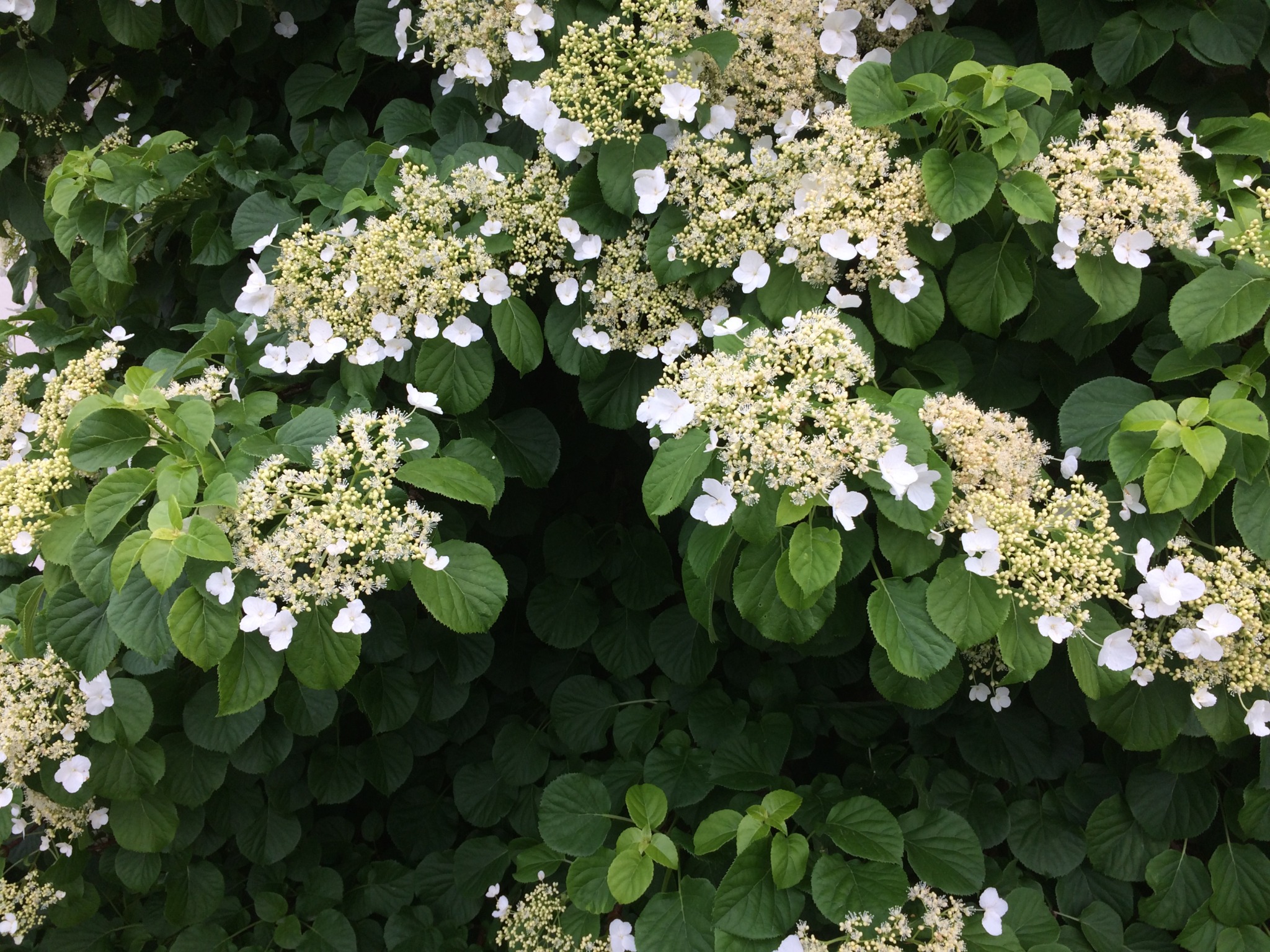
Hydrangea petiolaris syn. Hydrangea anomala petiolaris Climbing hydrangea Z 48 Heritage
Climbing hydrangea (Hydrangea anomala) provides all of the beauty of a traditional hydrangea bush, but in a trailing variety used to add visual interest to walls or fences.Native to Asia, this hydrangea species is a flowering deciduous vine best planted or transplanted in the late spring. In summer, white lacy blooms cap the lush green ovate leaves. A true climber, Hydrangea anomala has.

How to Grow a Climbing Hydrangea
When hydrangeas have dried in autumn, or late summer in dry climates, shake the flowerhead into a paper bag. The ripe seeds are black and easy to spot amongst the brown, papery petals, and are usually around 5mm long. To sow hydrangea seeds, you will need: 1 seed tray. Sieved garden compost. Garden soil. Method:
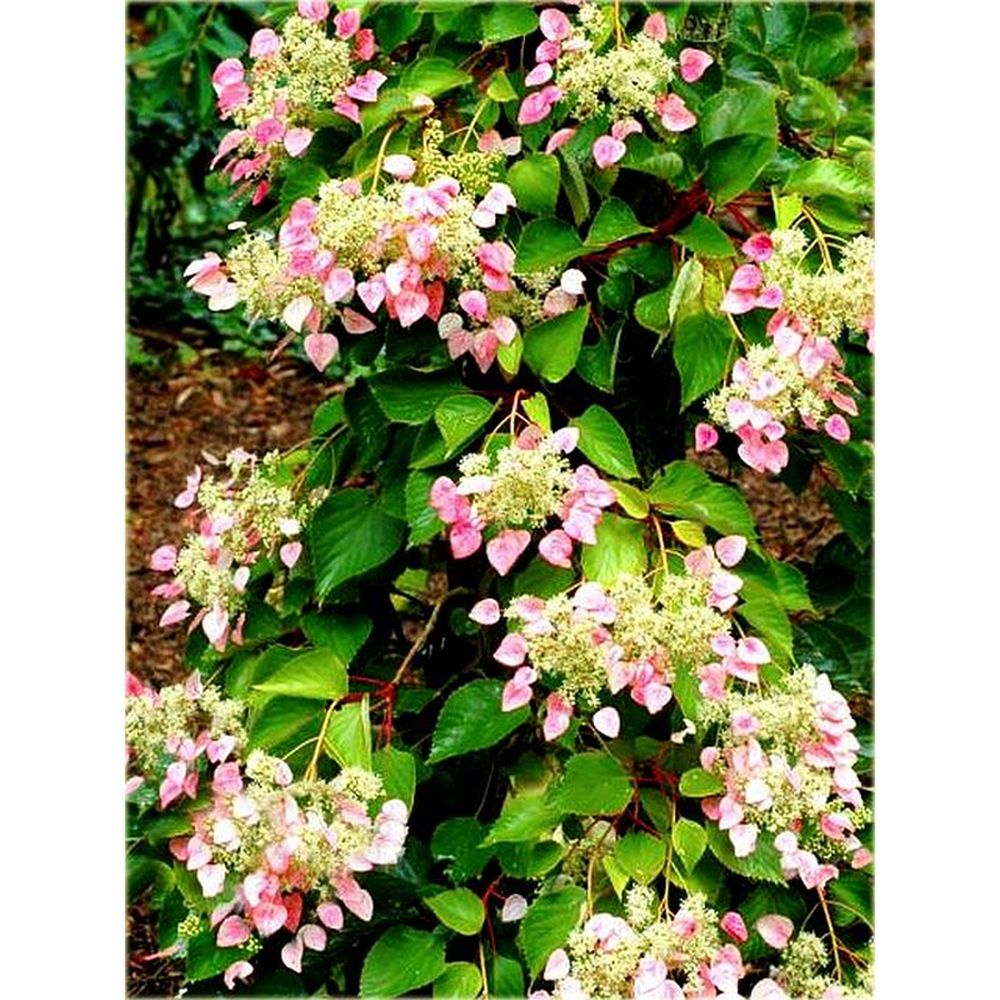
Climbing Hydrangea petiolaris Rosea G, H, I Busy Bee Garden Centre
What you need to know about hydrangeas. In a nutshell, this is what you need to know about growing hydrangea. Plant type: Hydrangea is a versatile plant, existing as a deciduous shrub that comes in various sizes, ranging from small to large. Height: Its height can vary from 0.5 to 2 meters. Leaves: The leaves are large, measuring approximately 10-20cm in length and 10cm in width.

Climbing Hydrangea Climbing hydrangea, Hydrangea varieties, Plants
The Climbing Hydrangea is a cottage garden plant with a rounded, deciduous habit. This variant is the most common climbing Hydrangea. $ 29.95 $ 26.95 inc. GST
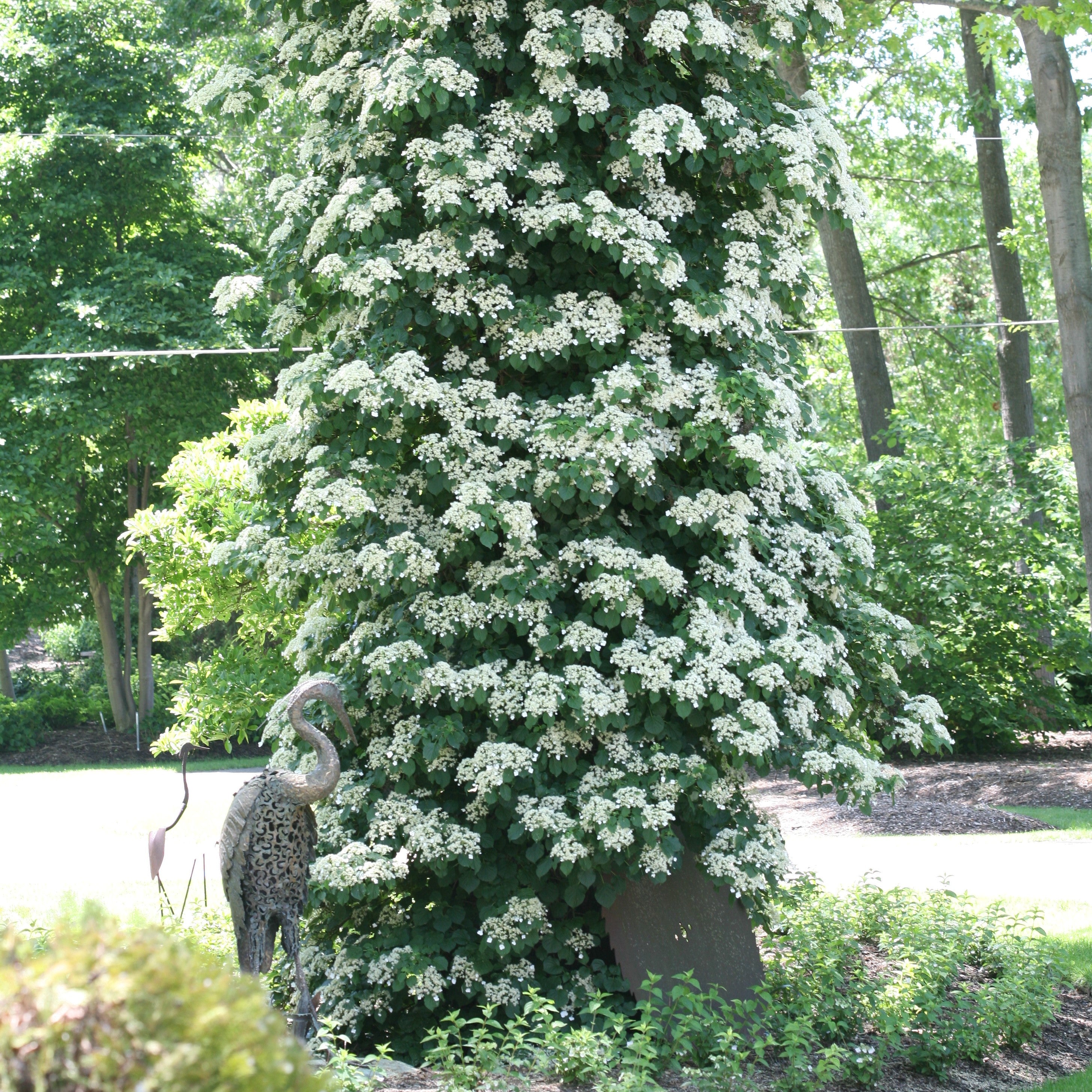
Climbing Hydrangea
PH between 6.0 would already be a purple flower. pH between 6.5 to 7.0 would already be a pink flower. How to change the hydrangea plant colour from blue to pink you would need to add lime, by mixing a cup full of lime with 4 1/2 litres of water and pouring this around your hydrangeas. This will change the colour of your hydrangea flowers to pink.
/Climbing-Hydrangea-57f289903df78c690ffb5090.jpg)
Climbing Hydrangea Plant Care & Growing Guide
The hydrangea is the undisputed Queen of the Southern Garden. Whether you grow a big leaf hydrangea, panicle hydrangea, smooth hydrangea, or oakleaf variety, a well-tended hydrangea will give you lots and lots of gorgeous blooms throughout the summer. Looking across a yard at a bank of hydrangea bushes in full bloom is certainly a site to behold, but consider looking upward to the climbing.
:max_bytes(150000):strip_icc()/climbing-hydrangea-vines-2132893-02-083103fb95104ad7a908d535ec5f76e9.jpg)
How to Grow and Care for Climbing Hydrangea
Largely native to Australia, Eucalyptus are yet another example of plant species that is both beautiful in the residental landscape, and practical in the commercial one.. Hydrangea petiolaris 'Climbing Hydrangea' - 20cm pot A stunning climbing form of Hydrangea which produces large clusters of white blooms. Foliage is rounded and lush.
THE DELIGHTS OF A CLIMBING HYDRANGEA
There are a number of easy techniques for growing a hydrangea from cuttings, including: Take 10cm soft-tip cuttings in October/November. Dip in suitable cutting gel, place in a pot of propagating mix, and keep moist in a warm shady spot. Take a stem cutting around 5cm long that has a plump bud, and treat as above.

Climbing Hydrangea Care Guide From Planting to Pruning Climbing hydrangea, Hydrangea care
Climbing-hydrangeas. 2023-10-19T11:11:39+11:00. SHARE; SHARE; Join our newsletter. Get gardening tips, plus exclusive offers Email address. ABC Gardening Australia magazine respects your privacy. By signing up, you're also agreeing to nextmedia's terms & conditions. Top picks. Shrubs and trees
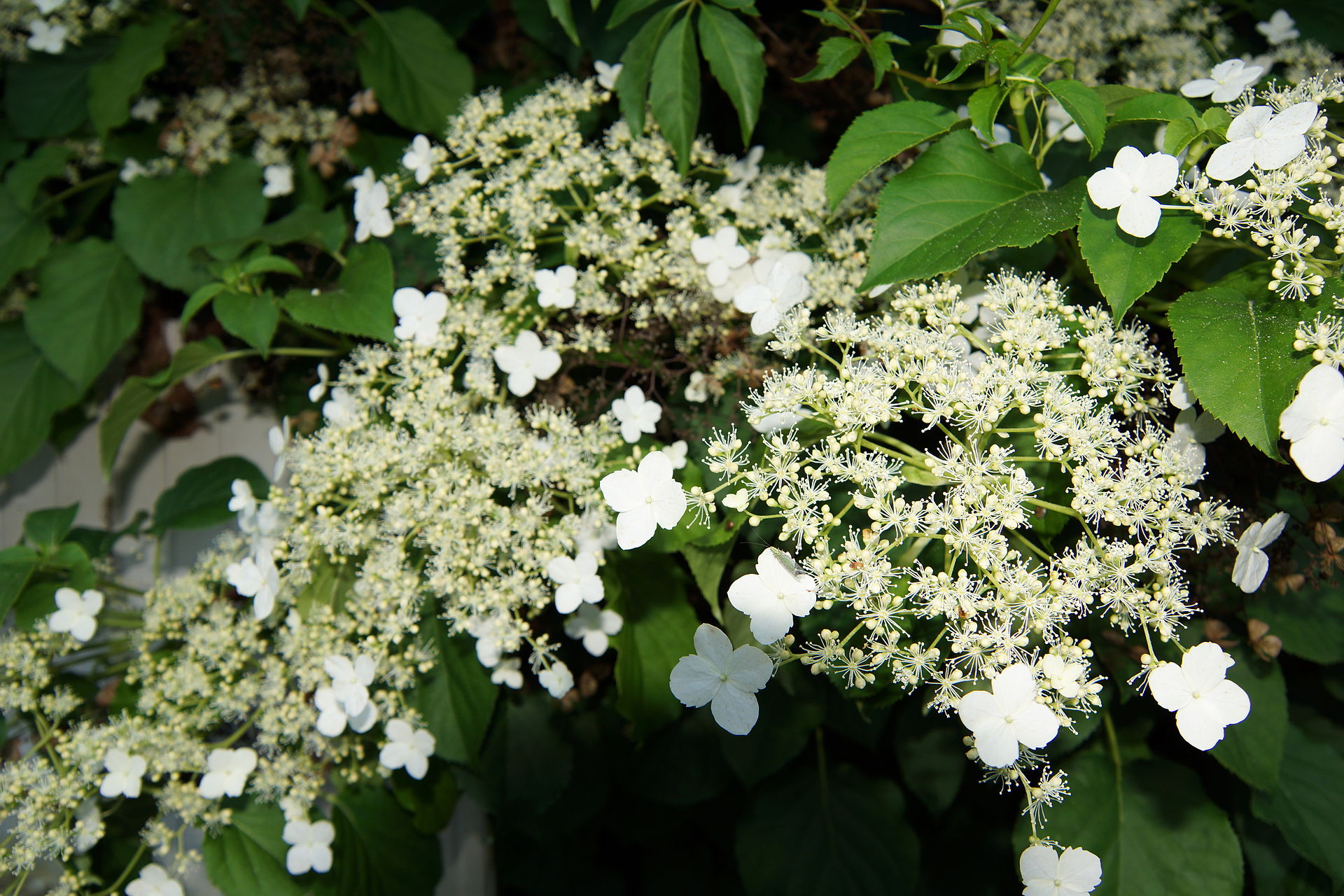
Climbing Hydrangea (Hydrangea anomala spp. petiolaris) Revolutionary Gardens
Schizophragma hydrangoides. Often referred to as a climbing hydrangea, Schizophragma hydrangoides is a deciduous vine that clings to walls, tree trunks and other structures. Often called the Japanese Hydrangea vine it is a relative to hydrangeas and does grow in similar conditions. The little adhesive 'aerial roots' will attach to most.
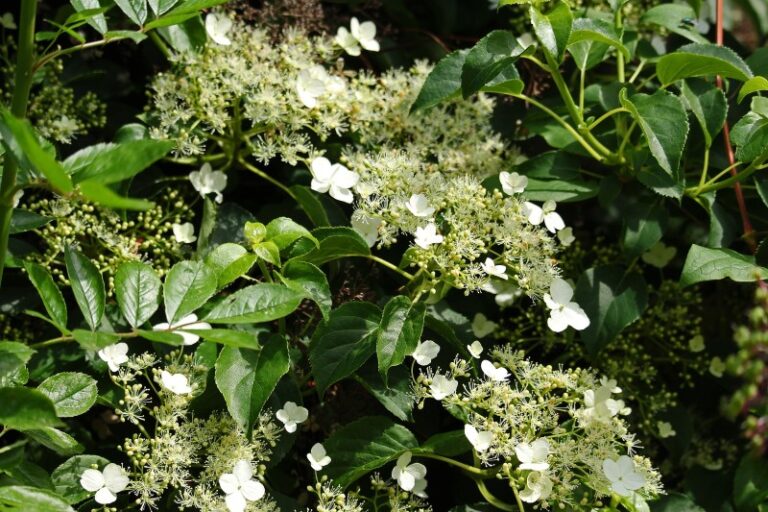
How to Grow and Care for Climbing Hydrangeas A Detailed Guide
Place the plant in the hole and backfill around the roots with soil. The final level of soil should be at the same level as the original potting mix around the plant. Water in well to settle the soil around the roots. Step 3 - Early Hydrangea Care. Keep the soil consistently moist while the plant establishes.
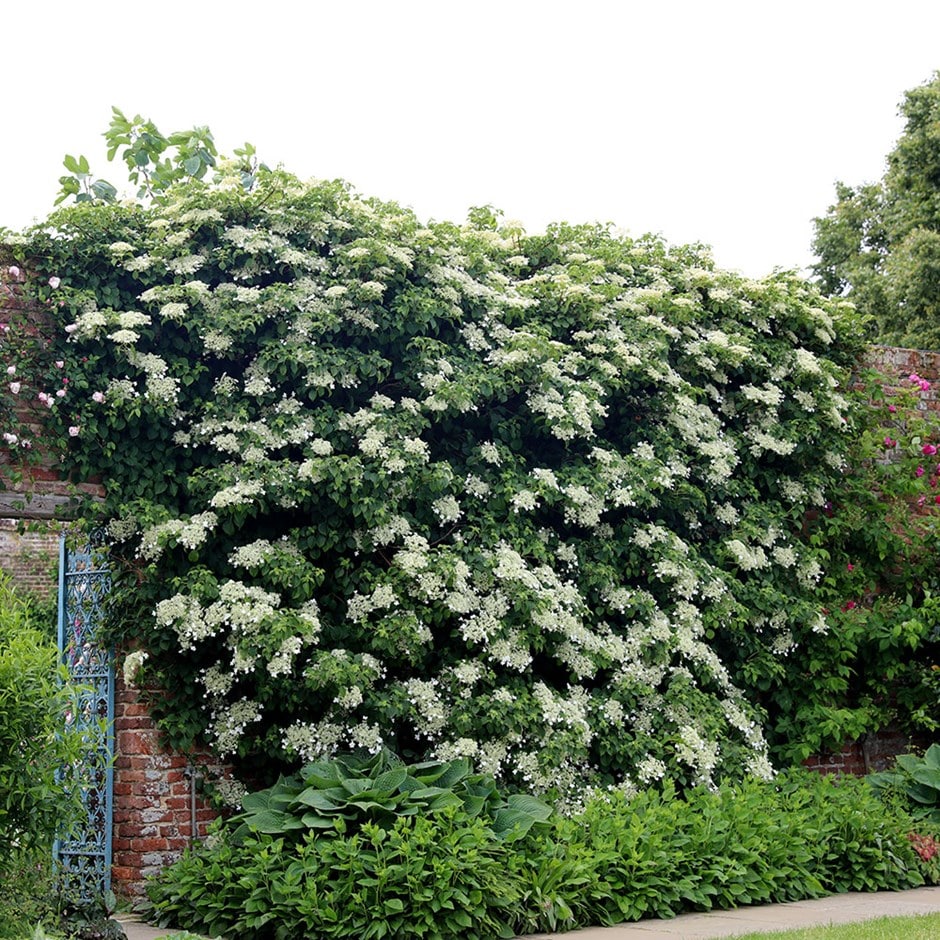
Buy climbing hydrangea Hydrangea anomala subsp. 'petiolaris'
Overview. Hydrangea petiolaris is a vigorous, deciduous self clinging climber. The aerial shoots allow it to climb without any other support over trellis and over trees and shrubs, if you want it to climb up a wall it will require additional support. It has oval leaves that turn yellow in autumn and have finely serrated margins.
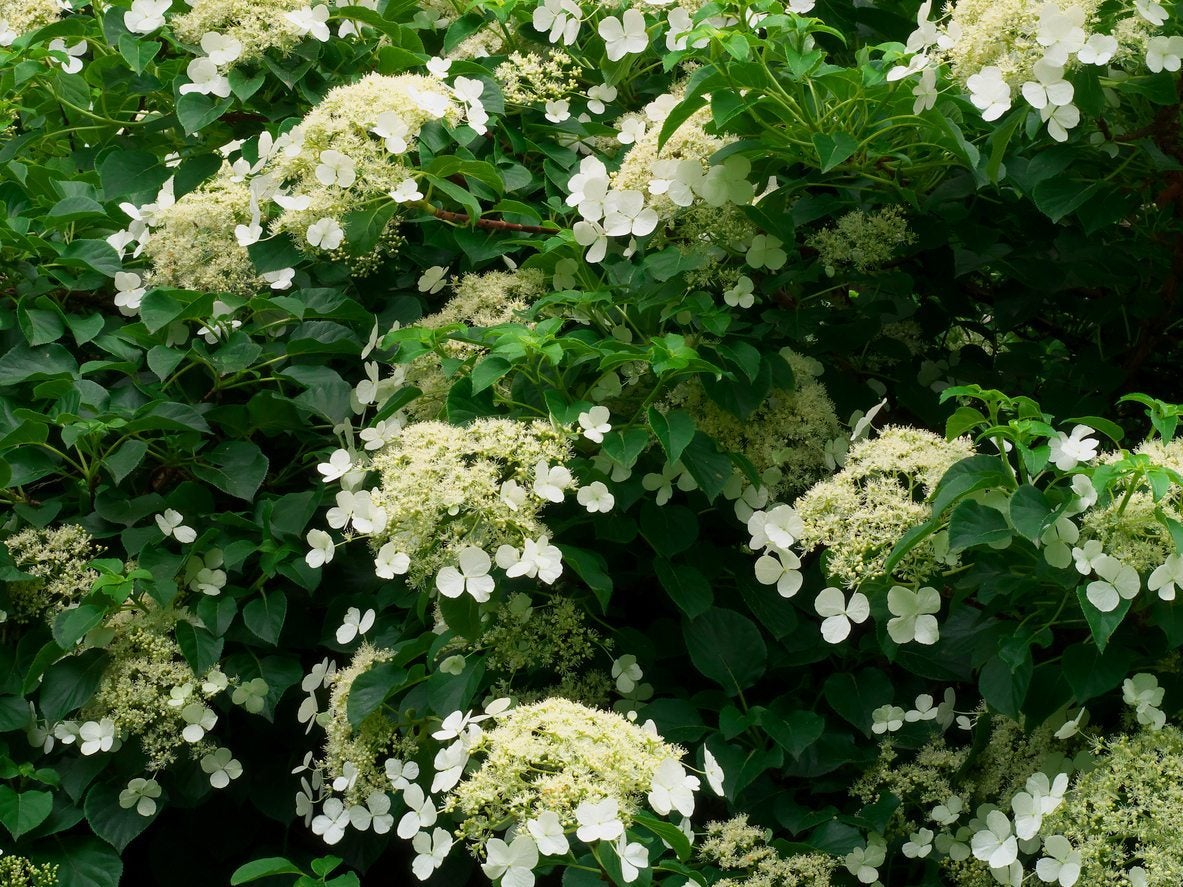
Info On Climbing Hydrangeas Growing Climbing Hydrangeas And Their Care
Growing climbing hydrangeas is easy. The plants are hardy in USDA plant hardiness zones 5 through 7. Climbing hydrangeas need a rich, moist soil that is well-drained. If your soil needs improvement, dig in a generous amount of compost before planting. The vine grows well in full sun or partial shade.
:max_bytes(150000):strip_icc()/climbing-hydrangea-vines-2132893-04-426f011f453e42718860042651a85bd1.jpg)
Climbing Hydrangea Plant Care & Growing Guide
Hydrangea petiolaris Climbing Hydrangea is a deciduous climber that produces masses of creamy white blooms that give that wow factor. The lush, deep green foliage turn a glorious gold in Autumn, leaving the cinnamon coloured bark revealed. It climbs on its own tendrils and won't mark masonry. Hydrangeas grow best planted in a sheltered position of the garden where the roots are cool and moist.

Info On Climbing Hydrangeas Growing Climbing Hydrangeas And Their Care Planting hydrangeas
Hydrangea Petiolaris - Deciduous Climbing hydrangea. Rare release FROM 7th Sept to Februaty 2024 or until sold out, be early! 1st In 1st served. Hydrangea Petiolaris - Rare Deciduous Climbing H ydrangea is a useful low-maintenance climber for a shady or South, East wall, also thriving in sunnier sites in moist soils (the flowers
:max_bytes(150000):strip_icc()/climbing-hydrangea-vines-2132893-03-80df842971454410894289b4c0cad1b9.jpg)
Climbing Hydrangea Plant Care & Growing Guide
Place the hydrangea in the hole and backfill with the original soil so that the top of the root ball is flush with the soil or about ½ inch higher. Tamp down the soil and water it well. Keep the soil moist by watering it regularly during the first growing season to encourage a strong root system.